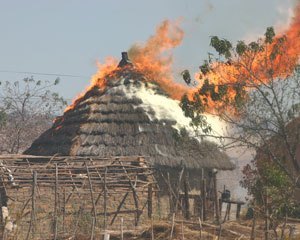
BULAWAYO — Cases of political violence, intimidation and discrimination have risen by over 50% from September to October as the parties prepare for next year’s elections, according to a survey by the Zimbabwe Peace Project (ZPP). NQOBANI NDLOVU AND NUNURAI JENA
The project recorded 444 cases of politically-related violence in October from 365 cases recorded in September this year.
The human rights group attributed the increase in cases of violence and intimidation to persistent calls by Zanu PF that elections must be held in March next year.
“As the country’s major political parties gear up in preparing for another electoral cycle, political tensions are slowly rising across the country with 444 cases recorded in October up from the 365 incidents witnessed during the month of September,” said ZPP in its latest report.
“Political polarisation is on the rise as political parties move to organise their supporters and begin to engage voters in preparation for the constitutional referendum and next year’s anticipated general elections.”
ZPP, which is headed by human rights activist Jestina Mukoko, said there was a massive deployment of state security personnel ostensibly to campaign for President Robert Mugabe and Zanu PF.
“Experiences of organised political terror are being relived in most parts of the country with an increase in the deployment and visibility of state security agents and soldiers, particularly in Manicaland and Bulawayo provinces where they were engaged in human rights abuses in 2008,” ZPP said.
The human rights body also condemned the politicisation of food amid reports hunger-stricken villagers who failed to attend Zanu PF meetings were denied food as punishment.
- Chamisa under fire over US$120K donation
- Mavhunga puts DeMbare into Chibuku quarterfinals
- Pension funds bet on Cabora Bassa oilfields
- Councils defy govt fire tender directive
Keep Reading
“The ZPP has witnessed a nationwide trend where Zanu PF officials and traditional leaders aligned to the party are abusing their positions to deny deserving villagers access to government supported and donor-funded food relief on political grounds,” said the report.
“People who fail to attend Zanu PF meetings are deliberately omitted as punishment and a campaign strategy,” the human rights body said.











